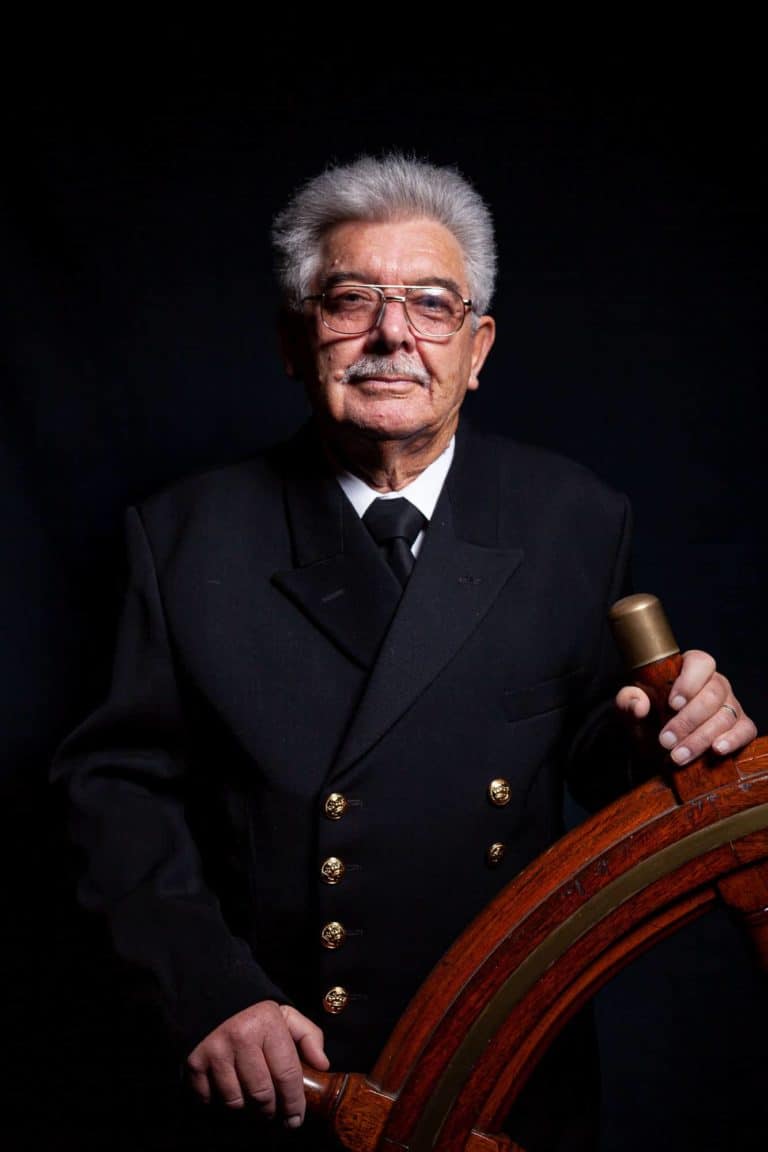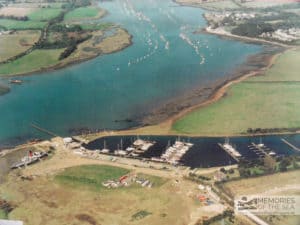Wayne Pritchett on Rivers and Harbours
Looking back, it’s been quite eventful really because when I took over of course we were still very busy with commercial shipping at Newport, particularly a lot of locally grown Island grain was being shipped out.
We had a weighbridge at Newport where we weighed the lorries and tipped the grain out but coming back in was quite large quantities of artificial fertiliser and things like that and cattle food and so on and occasionally of course scrap metal would be shipped out from Newport.
Of course, the writing was on the wall because as the Island population got bigger, you see, Newport didn’t have the depth of water to cope with the larger ships, so we could see what was going to happen.
The bigger ships would need to come to the Isle of Wight, and they would need to discharge at Cowes. Well, by the mid ‘60s, when I was down there with Morey’s that was, we lost the Shell BP Oil Company, they moved to Kingston where they still are today.
They’ve changed the name several times, I don’t know what they are called now, they were Dominion Oils, Island Oils, and then the Esso Oil Company which was based in Newport, they moved down initially to Stag Land, but now they’re all together now down at Kingston, so that’s the two Oil Companies we lost and as for the grain of course, we can only load at Newport 500 tonnes of grain because of the depth of water and Cowes can load 3,000, so you could see what was going to happen.
And also, with the advent of the roll on roll off lorries, you see those big articulated lorries which were based at Newport Quay until May 1995, that was Vectis Shipping Company, or Vectis Transport as they were called latterly, I mean those lorries were probably carrying about 30 tonnes.
I mean two or three of those articulated lorries would bring over what one barge would bring over, and you’ve got to remember the motor barges had a crew of four people, Union legislation came in where people had to be paid overtime after a 40-hour week. Well, working Newport was difficult because it’s tidal. There are times when you had to bring a ship up at night so that it was ready alongside in the morning to be unloaded ‘cos the tide would be out in the morning, so consequently they were paying enormous amounts of overtime to four ships crew when a chap could get in an articulated lorry, put it in a Ferry, come over and a forklift would unload him.
So, that was another thing that went towards the end of Newport as a commercial port. All we are left with now is a small gravel yard where they import sea dredged shingle for the cement making trade, and it was decided in the last days of the Medina Borough Council, perhaps we should look forward to encouraging leisure boats up to Newport.







